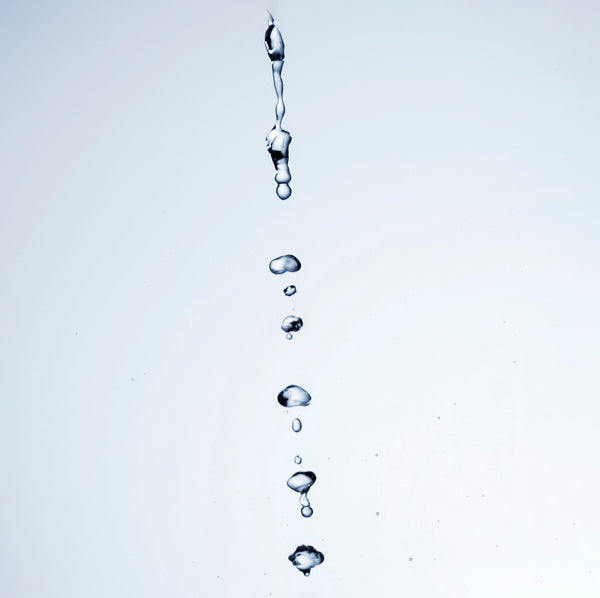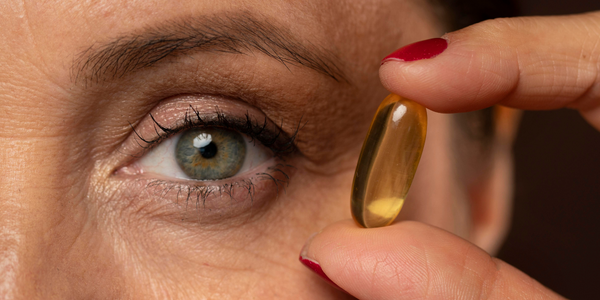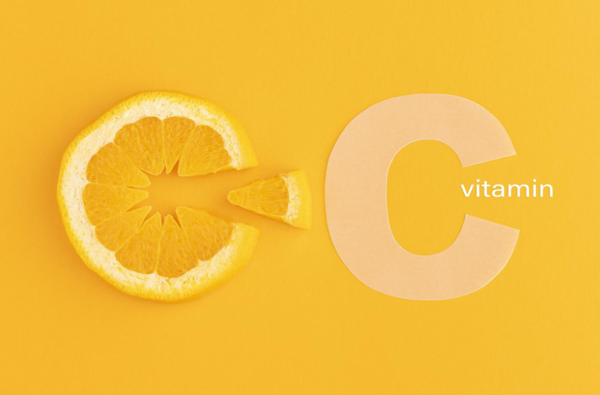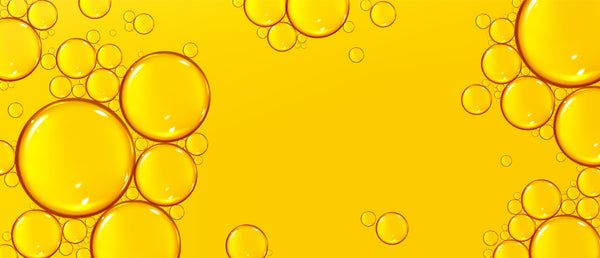Vitamin C is an essential vitamin that benefits immunity, skin, and bone health, among other things. However, as it’s water-soluble in nature, you need to add vitamin C-rich foods or supplements like vitamin C capsules or natural vitamin C tablets to your diet to prevent vitamin C deficiency and symptoms or diseases related to the lack of this important nutrient. While vitamin C is only really needed in very small amounts, if you don't get enough of it, it can wreak tremendous havoc on your body. So if you have been underestimating the importance of fruits and vegetables so far, read on to know how limiting foods rich in Vitamin C can impact your health.
Not sure whether you’re taking the required amount of vitamin C? Want to be sure? Well, you’ve come to the right place. In this blog, we’ll mention common signs/symptoms of vitamin C deficiency, diseases due to a lack of vitamin C, tips to prevent vitamin C deficiency, the best food sources of vitamin C, and the causes of vitamin C deficiency. If you notice any of the below vitamin C deficiency symptoms, it means you need more of this essential water-soluble nutrient. So, scroll down to learn everything you need to know about this vitamin.
Symptoms of Vitamin C Deficiency

Here is a list of symptoms that indicate you have a vitamin C deficiency.
1. Bumpy or Rough Skin
Vitamin C helps boost collagen production: a protein abundantly available in your blood vessels, joints, bones, tendons, skin, and hair. And when vitamin C is deficient, it leads to a condition known as keratosis pilaris, wherein your skin becomes bumpy, especially on the back of your buttocks or thighs. [Text Wrapping Break][Text Wrapping Break]Although it is one of the symptoms of vitamin C insufficiency, keratosis pilaris is not the only one. Additionally, there are a number of additional causes for this illness. So, before administering those vitamin C capsules, make sure you get your vitamin C levels checked or consider other symptoms as well.
2. Bright Red Hair Follicles
Hair follicles on your skin’s surface contain numerous blood vessels that transport blood to the region. However, due to a lack of vitamin C, blood vessels become fragile and break off, leaving red spots behind.
The above condition is known as a perifollicular hemorrhage, which happens due to scurvy (caused by vitamin C deficiency).
3. Spoon-Shaped Fingernails
Spoon Shaped nails are usually brittle, thin, and concave in shape. This condition, although mostly associated with anemia, is also linked to a lack of vitamin C. You may also find red spots or lines in the nail bed.
4. Slow Wound Healing
Vitamin C, being an important nutrient, is linked to the wound healing process. And its deficiency can have a significant negative impact on wound healing. It basically slows down the process, which can be dangerous.
However, this vitamin deficiency symptom does not manifest until a person has been lacking in this vitamin for several months. When this happens, prompt medical care is required.
5. Swollen or Painful Joints
Your joints have a lot of connective tissue that contains collagen. Also, it’s the collagen that keeps your joints hydrated and ensures smooth movement. However, as vitamin C deficiency has an impact on collagen production, it can indirectly impact your joints too.
Several studies have reported joint pain or difficulty walking due to a vitamin C deficiency. Also, bleeding can occur in the joints of people suffering from vitamin C deficiency, which can further lead to additional pain and swelling
6. Corkscrew-Shaped Body Hair
One of the classic signs of vitamin C deficiency, or scurvy, is corkscrew-shaped body hair. They are characterized by twisted or curly hair shafts with a swan neck, giving them a coiled shape. Vitamin C deficiency leads to the breakage of disulfide bonds in hair, giving it a swan neck and corkscrew shape. This hair may be difficult to spot as it tends to fall off.
7. Dry, Damaged Skin
Healthy skin has high concentrations of vitamin C, as it has an important role to play in skin health. Vitamin C is needed for collagen synthesis, imparting skin structure and elasticity. Owing to its antioxidant properties, it also protects the skin from the harmful effects of UV rays from the sun. Thus, vitamin C deficiency can lead to dry and damaged skin and either cause or aggravate skin diseases such as dermatitis.
8. Easy Bruising
Ascorbic acid (Vitamin C) is required for the synthesis of collagen. Collagen is an integral part of connective tissue. Thus, the absence of Vitamin C may cause breakage of the connective tissues of the capillary walls, leading to easy bruising. Studies have shown that oral supplementation with Vitamin C improves bruising rapidly.
9. Weak Bones
Vitamin C is needed for healthy bones as it helps in collagen formation, which forms connective tissue in the bone matrix. Vitamin C deficiency is also believed to promote bone tissue-breaking cell (osteoclast) formation and decrease bone-forming cells (osteoblasts). Thus weak and brittle bones could be a lack of vitamin C symptoms.
10. Bleeding Gums and Tooth Loss
Although collagen might not come to mind when considering oral health, it can help to bind our teeth together and maintain them firmly in the gums (Periodontal ligament). Since Vitamin C deficiency leads to the loss of collagen, these bone sockets that support the teeth are weakened due to the wastage of tooth enamel cells and dental sensor cells. As a result, vitamin C deficiency may also cause your gums to bleed and the loss of teeth due to increased mobility.
11. Poor Immunity
From the prevention of infections to healing wounds, vitamin C helps our immune system function at its very best. Being a potent antioxidant, it helps neutralize free radical damage to the immune cells along with stimulating the activity of white blood cells, thereby further boosting immunity. Vitamin C also accelerates collagen production, which has an important role in healing. So if you find yourself falling sick often, you may be lacking sufficient levels of vitamin C.
12. Persistent Iron Deficiency Anemia
Iron is a microelement necessary for the synthesis of hemoglobin, the protein found in red blood cells. This protein is responsible for binding and delivering oxygen to all parts of our body. A deficiency of Iron is termed anemia. Vitamin C is a water-soluble vitamin that helps absorb iron by converting it into an absorbed form (ferrous) from a non-absorbable form (ferric). Thus, a chronic lack of vitamin C can lead to conditions such as Persistent Iron Deficiency Anemia.
13. Fatigue and Poor Mood
Vitamin C has modulating effects on neurotransmitters and hormones in the brain. Vitamin C is necessary for the conversion of the neurotransmitter dopamine into norepinephrine. Norepinephrine is an effective antidepressant and helps increase mental vitality. Thus, a lack of sufficient vitamin C can make you sad, depressed, or irritable.
14. Unexplained Weight Gain
Weight gain may occur due to various reasons like insulin resistance, genetics, low energy expenditure, high energy, an unhealthy diet, and a sedentary lifestyle, including low levels of Vitamin C. One of the studies stated that individuals with adequate vitamin C levels burned more fat during moderate exercise. Vitamin C helps in the production of carnitine, a substance that turns fat into energy. Also, low levels of vitamin C have been linked with a high percentage of fat tissues.
15. Inflammation and Oxidative Stress
Low levels of vitamin C have been associated with high levels of inflammation and oxidative stress. Studies have confirmed that supplementation with Vitamin C reduces the overproduction of reactive species during and after exercise. The vitamin C antioxidant component scavenges free radicals, preventing oxidative damage to important biomolecules in the body. Thus, too much inflammation or oxidative stress could be an indicator of low levels of vitamin C.
What Causes Vitamin C Deficiency?
Poor dietary habits, digestive issues, hormone imbalances, chronic medical illnesses, and harmful lifestyle choices can all be contributing factors to vitamin C deficiency. Let's take a look at a few of the most notable ones.
-
Vitamin C lack in the diet-
Around 90% of vitamin C comes from fruits and vegetables, and not everyone may be able to afford them. Low socioeconomic status may be a strong reason for malnourishment due to financial constraints. Similarly, senior citizens may limit their food options or portion sizes owing to age-related appetite and dental changes causing a deficiency of vitamin C. Likewise, poor eating practices, like indulging frequently in processed and fast foods, can lead to a lack of vitamin C intake through diet.
-
Chronic Illness-
People who are critically ill tend to develop vitamin C deficiency, despite receiving standard ICU nutrition. This could possibly be due to an increased inflammatory response, especially in patients with septic shock (severe infection). Thus, chronic inflammation becomes another cause of lack of vitamin C.
-
Pregnancy-
Vitamin C levels tend to drop during pregnancy, especially during the second trimester. Plasma levels of vitamin C drop by 10–15% during pregnancy. This happens due to hormonal adjustments and blood volume expansion during this phase. Thus, pregnant women are advised to start with vitamin C supplementation during pregnancy, especially if their fruit and vegetable intake is low.
-
Smoking-
Smoking tends to decrease vitamin C levels due to its enhanced oxidative stress on cells in the body. Although vitamin C, an antioxidant, scavenges the oxidative damage caused by smoke, it is extensively used up in the process, and its blood levels are lowered.
-
Alcohol consumption-
Alcohol consumption for a chronic period hinders the vitamin C absorption capacity of the pancreas, which may also lead to pancreatitis and other pancreatic disorders, thus reducing vitamin C levels in the body.
-
Eating Disorders-
Eating disorders such as Anorexia, Celiac Disease, Irritable Bowel Disease, etc. can interfere with vitamin C absorption in the gut, thereby causing a deficiency.
The symptoms of a vitamin C shortage often overlap with those of other illnesses, making them less evident and confusing. If your symptoms overlap with any of the above possible lifestyle factors or health conditions, it would be a wise decision to get yourself tested for vitamin C deficiency and consider increasing your vitamin C intake through foods or supplements.
Diseases Caused by Vitamin C Deficiency
Scurvy- A severe deficiency of vitamin C is termed scurvy. The early stages of this disease are characterized by malaise, fatigue, decreased appetite, and lethargy. Untreated scurvy may progress into gingivitis, skin hemorrhages, and anemia.
Anemia- Anemia is a condition where your body produces lower-than-normal concentrations of red blood cells due to a lack of iron. Vitamin C aids in iron absorption in the body. Thus, a lack of vitamin C can lead to iron deficiency anemia.
Skin Diseases- Vitamin C is involved in the formation of the dermal layer of the skin, thus acting as a skin barrier. Thus, skin diseases such as Atopic dermatitis occur due to damage to the skin barrier, and their risk is higher in the absence of vitamin C. It is also essential for the formation of collagen, which imparts strength and elasticity to the skin, thereby preventing signs of aging such as wrinkles. Vitamin C also provides protection against the harmful effects of UV rays from the sun due to its antioxidant properties, thereby preventing severe skin diseases such as melanoma (skin cancer). Postherpetic Neuralgia, a painful skin condition that develops as an after-effect of herpes lesions, is believed to be relieved by vitamin C. The pain is thought to be generated by oxygen-free radicals produced by inflammation. Vitamin C's antioxidant property helps relieve this condition by scavenging free radicals.
How Can You Prevent Vitamin C Deficiency?
Although you can go for vitamin C-rich foods to deal with vitamin C deficiency, it’s not feasible for everyone. For instance, you’ll have to eat more than 100 grams of oranges each day to meet your daily needs. And for people living in areas where oranges are not available, getting vitamin C could be a problem. So, what’s the alternative? Well, natural vitamin C supplements like organic Vitamin C + zinc by Wellbeing Nutrition are the next best thing.
What is Organic Vitamin C + Zinc?
Vitamin C + Zinc is a natural supplement by Wellbeing Nutrition that contains vitamin C along with zinc that comes from natural sources such as:
- Acerola cherry
- Amla
- Rosehip
- Elderberry
These ingredients can help you:
- Enhance collagen production
- Prevent vitamin C deficiency
- Brighten skin
- Strengthen your immunity
- Lower the risk of heart diseases
- Reduce the signs of aging
Organic Vitamin C + zinc supplements are available as natural vitamin C tablets that are water-soluble, which makes it quite effortless to consume. Simply drop a tab in a glass of water and watch it fizz. Once the tab fizzes, you can sip the tasty and citrusy flavored Vitamin C + Zinc drink. [Text Wrapping Break][Text Wrapping Break]Coming to safety, Vitamin C + Zinc is an organic, gluten-free, dairy-free, sugar-free, non-GMO, and completely vegan supplement. Also, it’s clinically tested and proven to offer the benefits it promises. So, you can completely rely on this supplement.
The Best Sources of Vitamin C
One of the best places to get vitamin C is from fruits and vegetables. Among the foods high in vitamin C are:
- Strawberries
- Citrus fruits like oranges, kiwis, grapefruits, lemons, etc.
- Tomatoes
- White Potatoes
- Cruciferous vegetables like cauliflower, Brussels sprouts, cauliflower, etc.
Consuming vitamin C in its raw, natural state is recommended. The vitamin might lose its potency when exposed to heat and light. Additionally, it is best to cook foods high in vitamin C in water for a short period of time. The vitamin may leach into the water, and if this water is not consumed, you may lose out on this important nutrient. Foods high in vitamin C are best stir-fried or blanched; alternatively, choose fresh, ripe fruits.
How Long Does it Take to Fix Vitamin C Deficiency?
Vitamin C or ascorbic acid’s level is affected by many factors that can impair its absorption and functioning. Consuming fruits and vegetables regularly is one of the best ways to prevent Vitamin C deficiency. If Vitamin C intake is interrupted, its stores from the body pool usually get depleted within 4-12 weeks.
Wrapping Up
If you’re worried that you may be deficient in Vitamin C and want to prevent deficiency, you can rely on Vitamin C + zinc. Although rare, vitamin C deficiency can lead to a lot of issues affecting your ideal health. Also, the signs of vitamin C deficiency usually appear when their extent has increased. So if you notice multiple signs of vitamin C deficiency, visit a healthcare professional. You can start with an organic Vitamin C + Zinc supplement that not only helps you deal with vitamin C deficiency but also offers other amazing benefits. So, order a pack now.
References
Carr, A. C., & Maggini, S. (2017). Vitamin C and Immune Function. Nutrients, 9(11), 1211. https://doi.org/10.3390/nu9111211[Text Wrapping Break
National Research Council (US) Committee on Diet and Health. Diet and Health: Implications for Reducing Chronic Disease Risk. Washington (DC): National Academies Press (US); 1989. 12, Water-Soluble Vitamins. Available from: https://www.ncbi.nlm.nih.gov/books/NBK218756/
León-López, A., Morales-Peñaloza, A., Martínez-Juárez, V. M., Vargas-Torres, A., Zeugolis, D. I., & Aguirre-Álvarez, G. (2019). Hydrolyzed Collagen-Sources and Applications. Molecules (Basel, Switzerland), 24(22), 4031. https://doi.org/10.3390/molecules24224031
Hirschmann, J. V., & Raugi, G. J. (1999). Adult scurvy. Journal of the American Academy of Dermatology, 41(6), 895–910. https://doi.org/10.1016/s0190-9622(99)70244-6
Moores J. (2013). Vitamin C: a wound healing perspective. British journal of community nursing, Suppl, S6–S11. https://doi.org/10.12968/bjcn.2013.18.sup12.s6
Galimberti, F., & Mesinkovska, N. A. (2016). Skin findings associated with nutritional deficiencies. Cleveland Clinic journal of medicine, 83(10), 731–739. https://doi.org/10.3949/ccjm.83a.15061

























